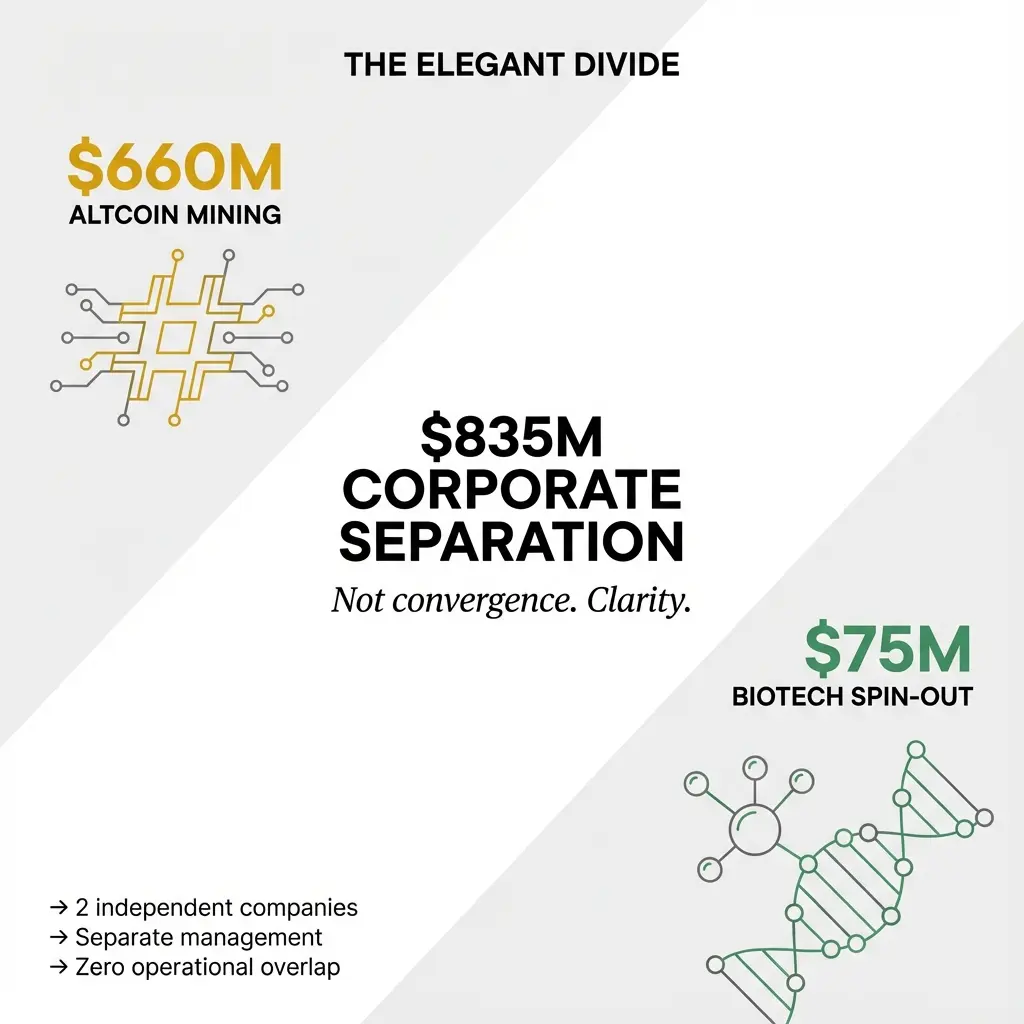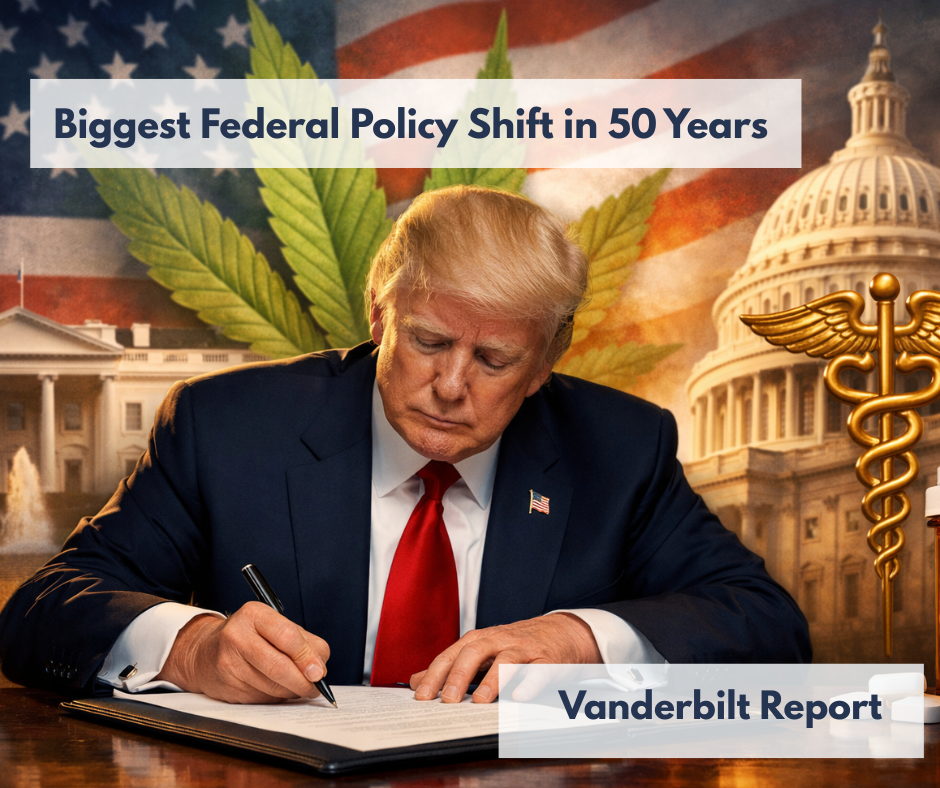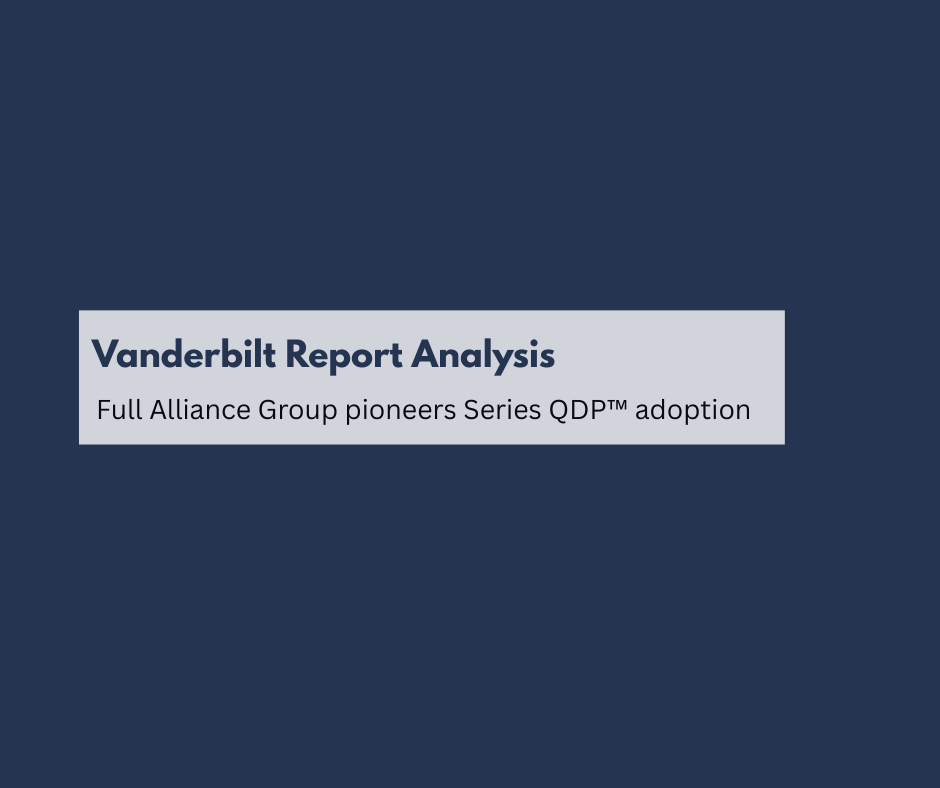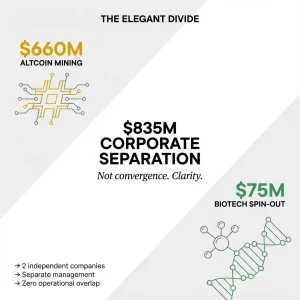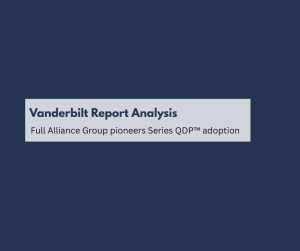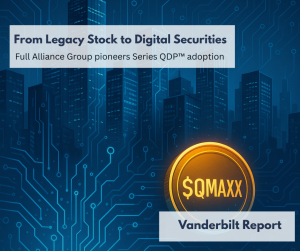Wall Street has talked about tokenizing stocks for years. The regulatory friction kept it theoretical.
That changed when Full Alliance Group (OTC: FAGI) announced its digital share infrastructure through subsidiary Qubitera Holdings.
The company is tokenizing its share management system using blockchain and post-quantum encryption. Not as speculation. As infrastructure.
The move signals that stock tokenization has evolved from fintech buzzword to viable corporate strategy.
Why Tokenization Matters Now
Stock tokenization transforms traditional shares into digital tokens on blockchain networks. The benefits are compelling: instant settlement, transparent ownership records, reduced intermediary costs, and 24/7 trading potential.
Major financial institutions are positioning for this shift. Fidelity, State Street, and Bank of New York Mellon have established digital divisions to handle increased client demand for digital asset infrastructure. Some report client demand tripling within two to three months.
The President’s Working Group on Digital Asset Markets released recommendations in July 2025 emphasizing the need to embrace DeFi technology and recognize its potential for integration into mainstream finance. The SEC and CFTC are using existing authorities to provide clarity on registration, custody, trading, and recordkeeping for digital assets.
Regulatory environment is evolving from resistance to accommodation. FAGI is capitalizing on that evolution.
The Technical Foundation
FAGI’s platform leverages post-quantum encryption standards. Specifically CRYSTALS-Kyber, CRYSTALS-Dilithium, and FALCON.
These aren’t experimental. NIST published its first three finalized post-quantum encryption standards on August 13, 2024. The algorithms are designed to withstand cyberattacks from quantum computers and are ready for immediate implementation.
The Biden administration required federal agencies to transition to post-quantum cryptography-based security by 2035. FAGI is building ahead of that mandate.
Post-quantum security matters for tokenized stocks. Traditional encryption protecting share records could become vulnerable as quantum computing advances. FAGI is future-proofing its infrastructure from day one.
Blockchain Transforms Share Management
Traditional share management involves multiple intermediaries. Transfer agents, custodians, clearinghouses, and brokers all maintain separate records that must be reconciled.
Tokenization eliminates that complexity. Blockchain provides a single source of truth for ownership records. Every transaction is recorded immutably. Settlement happens instantly instead of T+2.
Delaware established legal precedent for this approach. The state passed legislation in 2017
allowing blockchain for creation and maintenance of corporate records including articles of incorporation, stock ledgers, and shareholder lists.
Few public companies have capitalized on that precedent. FAGI is testing whether tokenization is viable for OTC market companies.
The Transparency Advantage
Tokenized shares create unprecedented transparency. Every ownership change, every vote, every corporate action gets recorded on an immutable ledger.
That transparency drives capital. Countries with robust crypto regulations saw an average 21% surge in fintech foreign direct investment between 2023 and 2025. Transparency through blockchain adoption serves as competitive advantage for attracting capital.
The Philippines demonstrated this at government level. The country digitized its $95 billion national budget using blockchain, resulting in a 21.3% rebound in foreign direct investment in 2025 despite global trade tensions. S&P upgraded the country’s credit rating to BBB with an “A-” outlook.
FAGI is applying that same transparency principle to corporate governance. Investors can verify share counts, ownership distribution, and voting records in real-time.
The strategic advantage is clear. Transparency reduces information asymmetry. That attracts institutional capital.
Liquidity and Fractional Ownership
Tokenization enables fractional share ownership at scale. Traditional systems make fractional shares administratively complex. Blockchain makes them native.
That opens new investor classes. Retail investors can access positions previously limited by minimum investment thresholds. International investors can participate without complex intermediary arrangements.
The liquidity benefits extend beyond fractional ownership. Tokenized shares can trade on multiple platforms simultaneously. Settlement is instant. Trading can happen 24/7 instead of limited exchange hours.
Over 75% of leading companies have switched to digital records as of recent data, up from less than 25% in 2019. Adoption is accelerating. But the gap between digital records and tokenized shares remains wide.
FAGI’s initiative bridges that gap. The company is moving from digitized records to tokenized infrastructure.
Regulatory Positioning
Stock tokenization faces regulatory scrutiny. The key is positioning tokenization as infrastructure enhancement rather than security creation.
FAGI frames its initiative as modernization of existing share management systems. The company works with securities counsel and regulatory advisors to ensure alignment with U.S. securities laws and SEC reporting requirements.
The platform maintains existing shareholder rights while enhancing traceability and efficiency. No new securities are created. Existing shares gain digital representation on blockchain infrastructure.
That positioning avoids triggering securities law complications. The shares remain the same legal instruments. The infrastructure becomes more efficient.
The Vanderbilt Report characterizes FAGI’s approach as “responsible evolution in corporate governance and technology integration.” That third-party validation matters for companies considering similar initiatives.
Cost Reduction Through Disintermediation
Traditional share management involves substantial ongoing costs. Transfer agents charge per-transaction fees. Custodians charge holding fees. Each intermediary extracts value.
Tokenization reduces those costs by eliminating intermediaries. Smart contracts automate dividend distribution. Blockchain handles record-keeping. Settlement happens without clearinghouses.
The cost savings compound over time. Every shareholder transaction, every dividend payment, every vote becomes cheaper to process and verify.
Corporate governance stakeholders recognize that blockchain’s lower costs, greater liquidity, more accurate record-keeping, and transparency of ownership may significantly shift power dynamics among managers, institutional investors, and shareholders.
FAGI is capturing those benefits while maintaining regulatory compliance. The company demonstrates that tokenization can reduce costs without creating legal complications.
Voting and Governance Benefits
Tokenized shares transform corporate voting. Traditional proxy voting involves multiple intermediaries and reconciliation challenges. Blockchain enables direct shareholder voting with instant verification.
Every vote gets recorded immutably. Shareholders can verify their votes were counted correctly. Companies can audit voting results transparently. The legitimacy of shareholder decisions increases.
By continuously tracking ownership throughout the settlement cycle, blockchain increases transparency and mitigates risks associated with custody chains in corporate securities management. Numerous studies highlight the technology as promising solution to inefficiencies in intermediated securities models.
FAGI’s platform enables direct communication between the company and shareholders. No intermediaries filtering information. No delays in shareholder notifications. Governance becomes more direct and efficient.
Institutional Adoption Signals
Institutional acceptance of tokenized securities is reaching critical mass. Major banks and asset managers are building infrastructure to handle digital assets.
The demand is real. Client interest in digital asset infrastructure has tripled at some institutions within months. The question has shifted from “if” to “when” and “how.”
Regulatory clarity is improving. The President’s Working Group recommendations provide a framework for integrating blockchain technology into mainstream finance. The SEC and CFTC are clarifying requirements for registration, custody, and trading.
FAGI’s timing aligns with this institutional shift. The company is implementing tokenization as the regulatory environment becomes more accommodating and institutional infrastructure develops.
The Competitive Advantage
Companies that tokenize shares early gain first-mover advantages. Enhanced transparency attracts institutional capital. Reduced costs improve margins. Better governance strengthens stakeholder relationships.
The technology also creates a defensive moat. Tokenized infrastructure becomes harder to replicate as network effects build. Shareholders become accustomed to instant settlement and transparent records.
FAGI is establishing that competitive position. The company demonstrates that public companies can implement tokenization within regulatory boundaries. Infrastructure modernization delivers tangible benefits without legal complications.
The initiative potentially establishes a template for other public companies. Tokenize infrastructure. Maintain compliance. Enhance transparency. Capture cost savings.
What Comes Next
Stock tokenization is moving from experimental to mainstream. FAGI’s implementation provides proof of concept for public companies on OTC markets.
The broader implications are significant. If tokenization works for FAGI, other public companies will follow. The competitive pressure to match enhanced transparency and reduced costs will drive adoption.
Traditional intermediaries face disruption. Transfer agents, custodians, and clearinghouses must adapt or become obsolete. The value chain for share management is being reconstructed.
Investors benefit from increased transparency, lower costs, and better liquidity. Companies benefit from reduced administrative burden and enhanced governance. The transformation creates value for all stakeholders.
FAGI is testing whether that value can be captured within existing regulatory frameworks. The answer will shape how public companies approach share management for the next decade.
CONTACT
Vanderbilt Report Media Relations
Kristen Owens
info@vanderbiltreport.com


